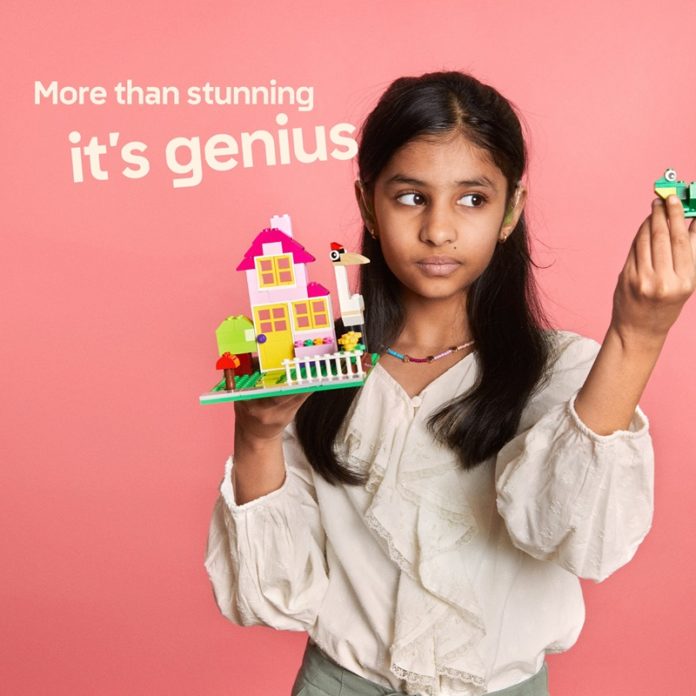The LEGO® Group encourages girls to embrace their interests, passions, and imaginations to unlock their limitless potential.
From creating fantasy worlds to bringing imagination alive, kids should be free to explore and express their creativity however they wish, but many – especially girls – are stifled by the weight of the world’s expectations.
A global study from The LEGO® Group showed that most girls (76%) are confident in their abilities to be creative, but as many as two thirds are scared to make mistakes. Parents have noticed this, with 71% saying these pressures cause girls to hold back on developing and sharing their ideas.
“Children deserve to have opportunities to play, imagine, create and express themselves without limitation or fear of failure,” says Miroslav Říha, country manager for LEGO South Africa. “Allowing kids to play freely and without limitation involves everything from the toys they play with to the way we speak to them and even in how we offer praise.”
Breaking down barriers to creative confidence
Limiting what children play with and even how they play negatively effects their creative confidence. For instance, playing with LEGO bricks helps to build a number of important skills in children, including creativity, problem-solving, and learning how to tolerate frustration and failure. In fact, 87% of all participants in the same LEGO study said experimenting with LEGO bricks and building sets helped them feel more confident in their creative skills. Yet LEGO play is mistakenly considered more suited to boys than girls, which inevitably places girls at a disadvantage.
Language plays an equally important role in building (or breaking) creative confidence in children and can add to the pressure many feel to be good at everything they do. Gender stereotyping sneaks its way into how adults address, direct, and praise children, where words like ‘pretty’ and ‘cute’ are used to describe work by girls, while ‘clever’ and ‘cool’ are more typically directed at boys.
“Where’s the fun in fearing failure? Simply by changing how we speak to children, grown-ups can ease a lot of the tension that children, and especially girls, feel to be perfect,” says Říha. “This shows children that flawless results are not the goal but being able to celebrate the small wins and how much we’ve learned and grown creatively. This simple adjustment dials down that pressure kids feel to be perfect, and suddenly they are free to explore, create, and make mistakes.”
Giving children opportunities to be creative without limitation or pressure has a number of benefits for their development and well-being. Making mistakes, for instance, builds a tolerance to frustration so that children keep trying until they succeed, instead of giving up at the first sign of difficulty.
“Girls are already innately creatively confident, according to the research. Let’s let girls and boys enjoy the gift of limitless play that’s not tied to getting top results, competing with others, or living up to anyone’s expectations. Parents and caregivers play a central role in this process,” adds Říha.
The LEGO Play Unstoppable campaign was created with the goal of breaking down the barriers that prevent children from being their uninhibited creative selves, celebrating the girls and boys in their creative worlds. Parents can play a part in helping to nurture creative confidence in children through a range of free workshops available on lego.com, designed to inspire creators aged six to twelve years old to unleash their creativity.
Article Provided




























